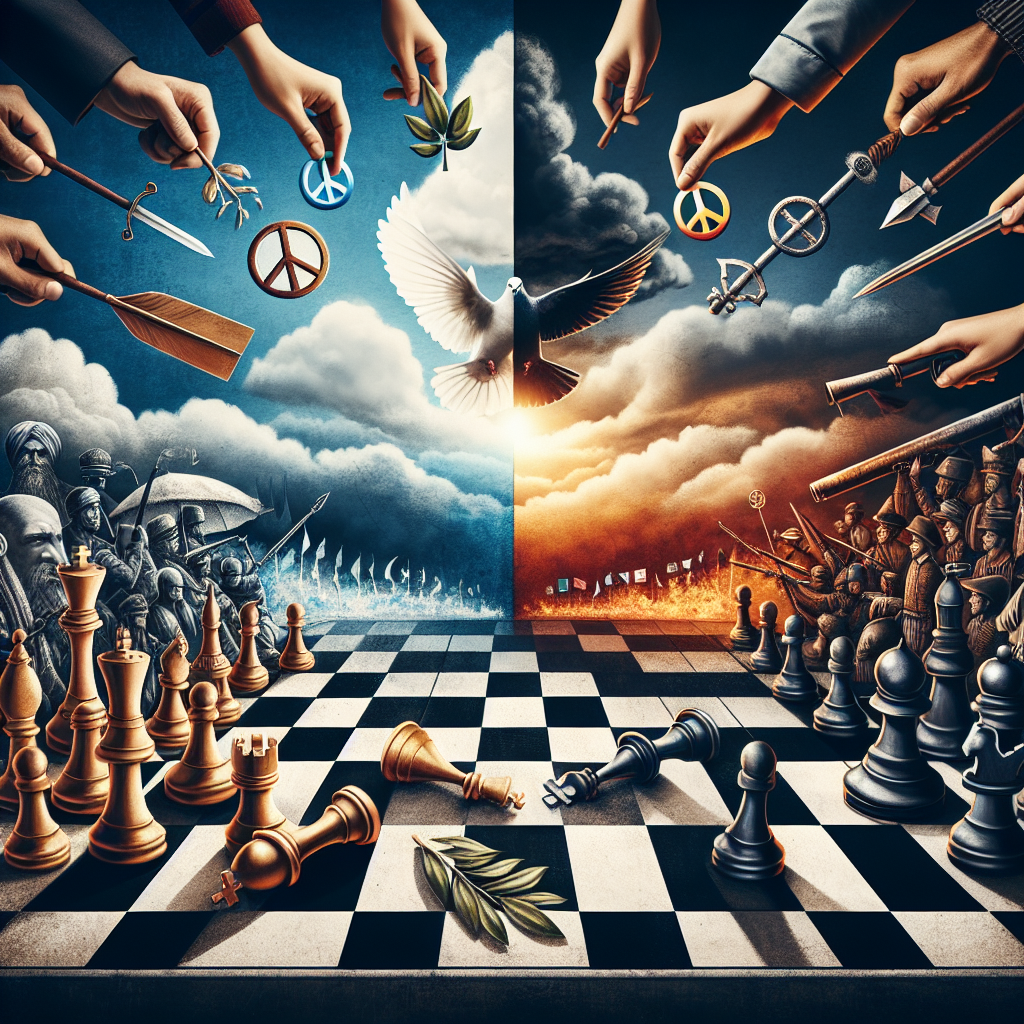Navigating the Tightrope: The Delicate Dance of Diplomacy with Russia
In the grand theater of international relations, every actor plays a part, some more boldly than others. Russia, with its storied history and vast resources, has long been a formidable player on this stage. But as new scripts emerge and old ones are rewritten, the question of how to engage with this powerhouse looms ever larger. The stakes? Nothing less than the specter of nuclear conflict, the expansion of military alliances, and the aspirations of Eastern European nations for sovereignty and security.
The High Stakes Gamble
At the heart of this geopolitical poker game is a bet that could either pay off in dividends or bankrupt the table. The hope, or perhaps the gamble, is that by inviting Russia to "join the party," to intertwine its energy supplies with Europe and be compensated handsomely for it, a transformation would occur. The vision was dazzling: a Russia that would reinvest its wealth into modernizing its infrastructure and reforming its byzantine business laws, a Russia where entrepreneurs could thrive without fear of being defenestrated or unexpectedly meeting their demise in a stairwell accident.
This vision, as alluring as it was, has clashed with the harsh realities of international politics and human nature. Russia's standards of living have stagnated, and President Putin’s model of augmenting wealth through territorial aggression and exploitation has proved to be inefficient at best, and at worst, devastatingly brutal.
The Illusion of Wealth Through Conquest
The underlying assumption of Putin's strategy—that wealth can be effectively created through military conquest and the appropriation of neighbors' assets—is fundamentally flawed. The acquisition of territory or resources through force may offer a temporary illusion of prosperity, but it is a mirage that quickly evaporates under the scorching sun of economic sanctions, international isolation, and the immense human cost of conflict.
Moreover, the notion that Eastern European countries could be resigned to a fate of perpetual subservience to Russia as a consequence of geographic happenstance and historical aggression is not only morally indefensible but also strategically short-sighted. It underestimates the resilience of these nations and their rightful aspirations for self-determination, democracy, and integration into broader European and transatlantic structures.
The Cost of Diplomatic Stalemates
The dance of diplomacy with Russia is a delicate one, requiring both a firm stance on fundamental principles and a willingness to engage in dialogue and cooperation where possible. However, the balance is precarious, and the cost of missteps can be high.
The consequences of diplomatic stalemates are not limited to the immediate actors involved but ripple outwards, affecting global security, economic stability, and the fabric of international law and norms. As tensions escalate, the specter of nuclear conflict looms larger, casting a long shadow over the future of international relations.
The Path Forward: Engagement or Isolation?
The dilemma facing Western policymakers is whether continued engagement with Russia can yield tangible improvements in behavior and policy, or whether a strategy of isolation and containment is more likely to protect the interests of the international community.
Both approaches carry risks and uncertainties. Engagement offers the possibility of gradual change and the integration of Russia into a rules-based international order, but it also risks legitimizing and emboldening aggressive behavior. Isolation may curtail Russia's ability to disrupt global stability but at the cost of exacerbating tensions and potentially driving Moscow into closer alliances with other authoritarian regimes.
The Role of the International Community
The international community's role in this geopolitical drama is critical. Unity and resolve among democratic nations are essential in conveying to Russia that its aggressive actions and disregard for international norms are unacceptable and will have consequences. This collective stance, coupled with targeted sanctions, diplomatic efforts, and support for affected countries, can create a framework for de-escalation and dialogue.
However, this strategy requires patience, fortitude, and the recognition that progress may be incremental and uneven. The goal is not merely to contain Russia's ambitions but to encourage a reevaluation of the assumption that power and prosperity can be derived from territorial conquest and the suppression of neighboring states.
Conclusion: A Delicate Balance
The international community stands at a crossroads, facing the challenge of navigating its relationship with Russia amidst the realities of power politics, national interests, and the principles of sovereignty and human rights. The path forward is fraught with complexities and uncertainties, but the stakes—peace, security, and the rule of law—could not be higher.
As this delicate dance of diplomacy continues, the world watches closely, hoping that wisdom, courage, and a commitment to shared values will guide the actors on this global stage toward a future marked by cooperation rather than conflict.
For further reading on the complexities of Russia's relationship with the West and the geopolitics of Eastern Europe, these resources offer valuable insights:
- Council on Foreign Relations - Russia's Foreign Policy
- European Council on Foreign Relations - Europe's Eastern Crisis: The Geopolitics of Asymmetry
In navigating the tightrope of diplomacy with Russia, the international community must weigh every step carefully, mindful of the historical forces at play and the grave consequences of misjudgment.
Related News
- Analyzing Putin's Double-Down Dilemma: A Deep Dive
- Russia's Missed Road to Prosperity: A Journey Through Its Woes and What Could Have Been
- The NATO Enigma: Eastern Europe's Quest for Security and Prosperity
- Peering Into the Abyss: The Shadow of Global Conflict in the Modern Era
- Navigating the Rough Seas of Global Politics: The Maritime Order Strategy
